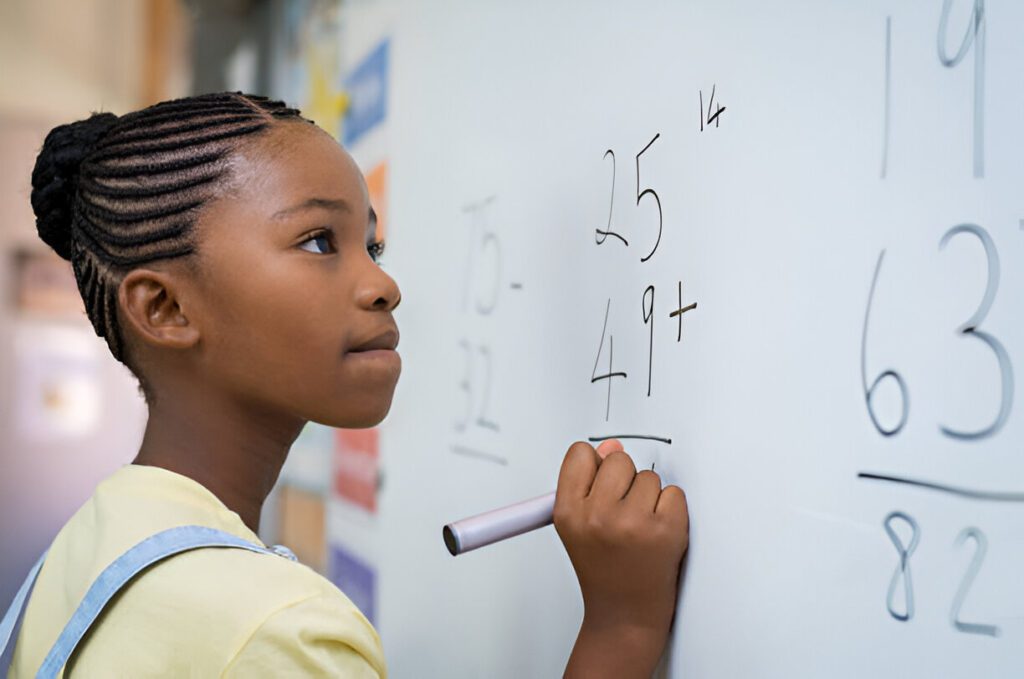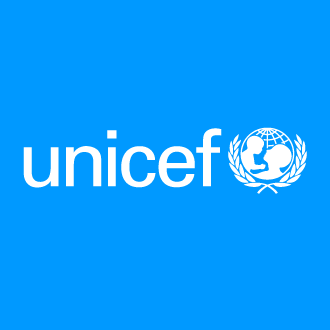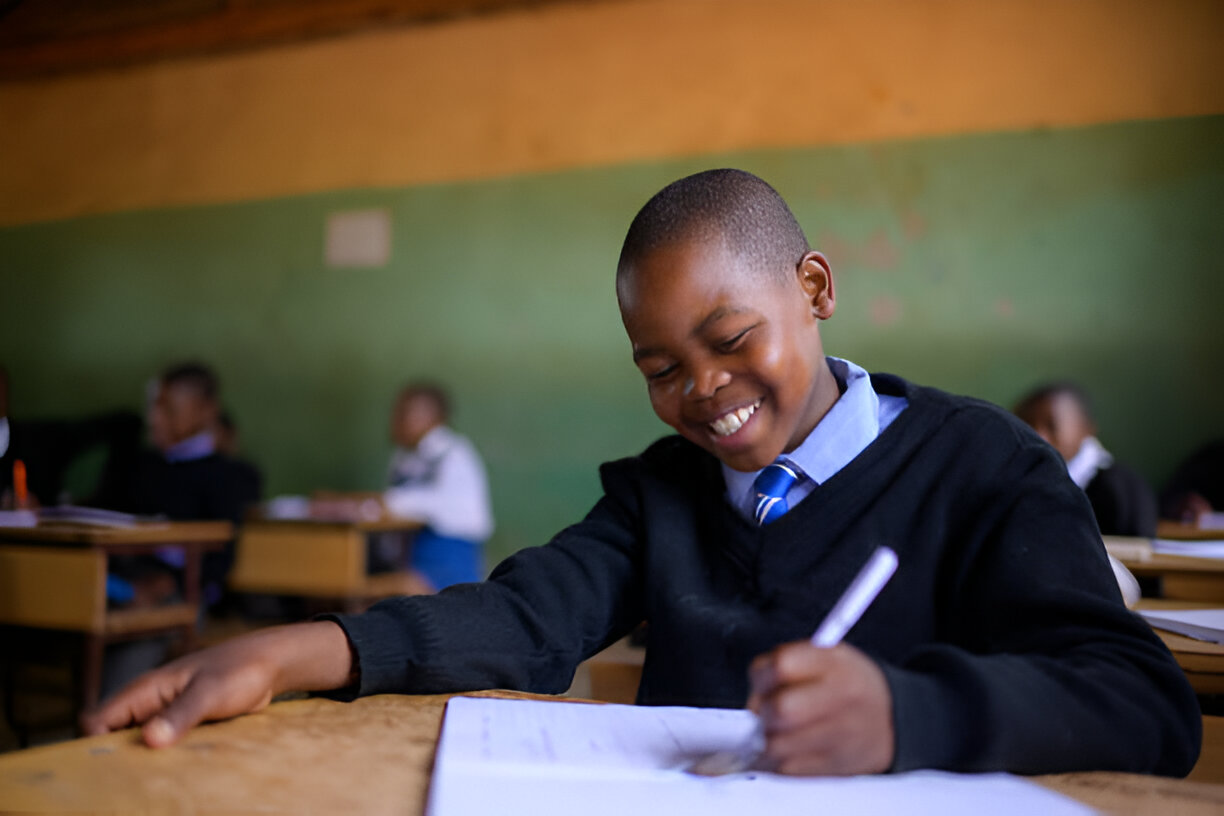UNICEF education programs in Nigeria has been for long in Nigeria since 1953. Since then, UNICEF has been actively involved in various programs aimed at improving the well-being of children and women across the country, including health, nutrition, education, water and sanitation, and child protection initiatives.
Over the decades, UNICEF has played a significant role in addressing the challenges faced by children in Nigeria, particularly in areas such as education, health, and emergency response.
This article provides an in-depth look at UNICEF education programs in Nigeria, highlighting both the well-known and hidden aspects of their work. It reflects on the challenges, successes, and broader impacts of these programs, offering a comprehensive view of UNICEF’s efforts to improve education in Nigeria.
The Challenge: Understanding the Educational Landscape in Nigeria
Overview of Educational Challenges in Nigeria
Nigeria’s education system faces several critical challenges. With the largest population in Africa, the country struggles to provide quality education for all children. Issues such as inadequate infrastructure, untrained teachers, overcrowded classrooms, and insufficient funding are pervasive. These issues are compounded by socio-economic inequalities, making it difficult for children in low-income families, particularly in rural areas, to access education.
Regional Disparities in Access to Quality Education
The challenges facing Nigeria’s education system are not evenly distributed. The northern regions, in particular, suffer from significantly lower school enrollment rates compared to the southern regions. Cultural factors, poverty, and a lack of schools contribute to the educational divide. Girls are especially affected, as cultural norms in the north often discourage female education.
The Impact of Conflict and Displacement on Nigerian Education
Nigeria’s northeastern states have been ravaged by insurgency, particularly by Boko Haram, whose violent campaigns have targeted schools. Thousands of children have been displaced, and many schools have been destroyed. As a result, millions of children are out of school, and those who remain enrolled face significant disruptions to their learning.
The Solution: UNICEF’s Strategic Approach to Education in Nigeria
UNICEF’s Vision for Education in Nigeria
UNICEF’s vision for education in Nigeria is rooted in ensuring that every child has access to quality education, regardless of their socio-economic background. The organization focuses on reaching the most vulnerable and marginalized children, promoting gender equality, and ensuring that education contributes to the holistic development of children.
Key Initiatives and Programs Implemented by UNICEF
To address the challenges in Nigeria, UNICEF has implemented several targeted programs. UNICEF Education Programs include providing access to education in conflict-affected areas, promoting gender equality through girls’ education programs, and improving the quality of education by supporting teacher training and curriculum development.
Collaborative Efforts with the Nigerian Government and Other Partners
UNICEF works closely with the Nigerian government, civil society organizations, and international donors to implement its programs. This collaboration is crucial in creating a sustainable impact, ensuring that the government takes ownership of education initiatives, and mobilizing resources to support long-term goals.
Resources: Leveraging Support for Educational Development
Financial and Human Resources Mobilized by UNICEF
UNICEF allocates substantial financial resources to support education in Nigeria. These funds are sourced from international donors, governments, and private organizations. Additionally, UNICEF engages local educators, volunteers, and community leaders to strengthen the delivery of its education programs.
Partnerships with NGOs, CSOs, and International Donors
UNICEF’s education programs are bolstered by partnerships with non-governmental organizations (NGOs), community service organizations (CSOs), and international donors. These partnerships provide additional expertise, funding, and grassroots support that help UNICEF to expand its reach and improve its impact.
Community Engagement and Capacity Building
UNICEF emphasizes community involvement in education, working with local leaders, parents, and educators to ensure that educational initiatives are sustainable. By building capacity at the community level, UNICEF fosters a culture of education where children are encouraged to stay in school and succeed academically.
UNICEF Education Programs and Nigeria Education Fact Sheets: Data-Driven Insights
Key Statistics on Enrollment, Literacy, and Gender Disparities
According to Nigeria’s Education Fact Sheets, over 10.5 million children are out of school, the highest number globally. The gender disparity is stark, with significantly fewer girls enrolled, especially in the northern regions. Literacy rates remain low, with only 65% of children completing primary school.
Trends in Educational Access and Outcomes Over the Years
Over the past decade, there have been modest improvements in educational access, largely due to initiatives from the Nigerian government and organizations like UNICEF. However, the progress remains slow, particularly in conflict-affected regions where insurgency has hampered educational development.
The Role of Data in Shaping UNICEF’s Interventions
UNICEF relies heavily on data, such as the information found in the Nigeria Education Fact Sheets, to shape its interventions. By identifying key gaps in enrollment, literacy, and gender equity, UNICEF can prioritize programs and resources to target the most critical needs.
Minimum Standards for Safe Schools in Nigeria: Ensuring a Secure Learning Environment
Defining Minimum Standards for Safe Schools
UNICEF has been instrumental in defining the minimum standards for safe schools in Nigeria. These standards ensure that schools provide a secure environment where children can learn without the threat of violence or abuse. They include guidelines for physical safety, psychosocial support, and inclusive practices that protect all children.
UNICEF’s Role in Promoting Safe Schools
Through its advocacy and collaboration with the Nigerian government, UNICEF promotes the implementation of safe school standards across the country, particularly in conflict-affected regions. The organization works to rehabilitate schools, provide security infrastructure, and train teachers in child protection practices.
Case Studies: Implementation of Safety Standards in Conflict Zones
In northeast Nigeria, where schools have been destroyed by conflict, UNICEF has led efforts to rebuild schools and establish safe learning spaces for displaced children. Case studies highlight the success of these efforts, showing how safety measures have helped children return to school and resume their education in secure environments.
Girls’ Education Project Phase 3 (GEP3): Empowering the Next Generation

Objectives and Achievements of GEP3
The Girls’ Education Project Phase 3 (GEP3) is one of UNICEF’s flagship initiatives in Nigeria. Its primary objective is to improve girls’ access to education, particularly in northern Nigeria. GEP3 focuses on increasing enrollment, retention, and completion rates for girls at the primary and secondary school levels.
Impact of GEP3 on Girls’ Enrollment and Retention Rates
Since its inception, GEP3 has made significant progress in enrolling girls in school and keeping them in the system. Enrollment rates in targeted areas have increased by over 25%, and retention rates have also improved, with more girls completing their primary education and transitioning to secondary school.
Challenges and Success Stories from GEP3 Implementation
While GEP3 has been successful, it faces challenges such as cultural resistance, early marriage, and insecurity. However, success stories from the program show how girls who would have otherwise been denied an education have gone on to become role models in their communities.
Education Knowledge Products: Tools for Change
Overview of UNICEF’s Education Knowledge Products
UNICEF develops a wide range of education knowledge products, including research reports, policy briefs, and toolkits. These resources are designed to support educators, policymakers, and development practitioners in improving education outcomes for children.
How Knowledge Products Influence Policy and Practice
UNICEF’s knowledge products play a critical role in influencing policy and practice at both national and international levels. By providing evidence-based insights, UNICEF helps shape education reforms, funding allocations, and program design in Nigeria.
Accessing and Utilizing UNICEF’s Educational Resources
Educators, policymakers, and researchers can access UNICEF’s knowledge products through its website and publications. These resources provide valuable information on best practices, case studies, and strategies for improving educational outcomes in Nigeria.
UNICEF Nigeria Key Results for Children: Measuring Impact
Highlighting Key Achievements in Education
UNICEF’s work in Nigeria has yielded impressive results, particularly in improving access to education in conflict-affected areas. The organization has helped enroll over 1 million children in school, rehabilitated hundreds of classrooms, and provided learning materials to thousands of students.

The Broader Impact of UNICEF’s Education Programs on Nigerian Children
Beyond enrollment numbers, UNICEF’s education programs have had a broader impact on the lives of Nigerian children. These programs have improved literacy rates, reduced dropout rates, and empowered children with the skills and knowledge needed to succeed in life.
Success Metrics and Future Goals
UNICEF measures its success through various metrics, including enrollment rates, literacy levels, and student retention rates. Looking forward, UNICEF aims to expand its programs to reach even more children, particularly those in underserved and conflict-affected regions.
2021 Multiple Indicator Cluster Survey Report: A Deep Dive
Key Findings from the 2021 MICS Report on Education
The 2021 Multiple Indicator Cluster Survey (MICS) report provides critical insights into Nigeria’s education system. Key findings include high out-of-school rates, significant gender disparities, and poor learning outcomes in many regions. These findings highlight the urgent need for continued intervention.
Implications of the Report for UNICEF’s Programs in Nigeria
The MICS report underscores the importance of UNICEF’s ongoing efforts to address educational inequities in Nigeria. The data informs UNICEF’s strategies and helps identify areas where more targeted interventions are needed to ensure that all children have access to quality education.
Using MICS Data to Address Educational Inequities
By analyzing MICS data, UNICEF can tailor its programs to address the specific needs of different regions and demographics. For instance, in areas with high out-of-school rates, UNICEF focuses on community outreach and alternative education models to bring children back into the system.
Hidden Facts: Unveiling the Untold Stories Behind UNICEF’s Education Programs
Behind the Scenes: Challenges Faced by UNICEF in Nigeria
While UNICEF’s education programs have made a significant impact, they have not been without challenges. Limited funding, cultural resistance, and political instability are just a few of the hurdles UNICEF faces in implementing its programs. Despite these challenges, UNICEF remains committed to improving education for all Nigerian children.
Unsung Heroes: The Role of Local Communities in Program Success
One of the hidden facts about UNICEF’s success in Nigeria is the vital role that local communities play. Community leaders, parents, and teachers often go above and beyond to ensure the success of education initiatives, providing support and resources even in the most difficult circumstances.
Lesser-Known Impacts of UNICEF’s Work on Education and Beyond
While UNICEF’s work in education is well-known, the organization’s impact extends beyond the classroom. By improving education, UNICEF also contributes to better health outcomes, economic development, and social stability in Nigeria. The ripple effects of education programs are felt across communities, leading to a brighter future for all.
Feel free to share this article using the social media handles below


